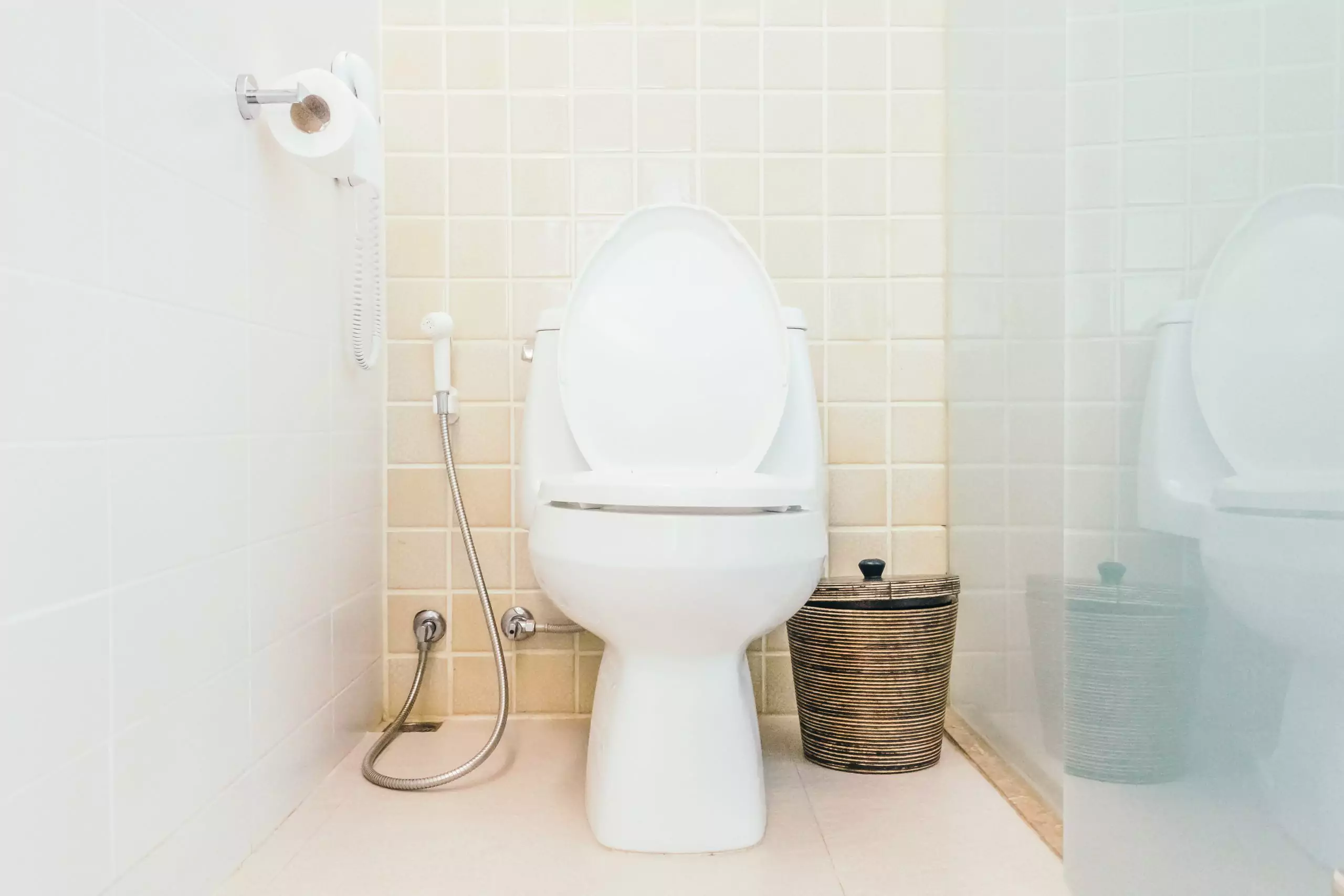What Are the Symptoms of Bad Kidneys?
It may come as a surprise that chronic kidney disease (CKD) can be active in the body for years. Symptoms of bad kidneys tend are typically not readily observable until the disease progresses. Unlike acute kidney failure, which comes on quickly due to a severe injury, kidney failure from CKD is a gradual process.
Through the first three of the five kidney disease stages, symptoms are usually so subtle that blood tests, urine tests, and/or CT scans are necessary for a diagnosis. In stages 1 and 2, evidence of the disease is most often limited to the presence of proteins in the urine and elevated amounts of creatinine (a metabolic waste from muscle use) in the bloodstream.

It’s important to bring a thorough list of your symptoms to your doctor, so they can order the correct tests and provide an accurate diagnosis.
(This image is by @rawpixel.com on Freepik.)
Most symptoms don’t manifest until the disease has reached its advanced stages. Once they do, they usually can’t—and shouldn’t be—ignored. When experienced in isolation, several of the following symptoms may have causes other than kidney disease. In the late stages of CKD, however, many symptoms may appear at the same time, and they will have a direct connection to significant loss of kidney function.
Here are some of the most common symptoms of bad kidneys that you may experience if you have chronic kidney disease.
What causes chronic kidney disease?
There are several health conditions associated with chronic kidney disease. What’s unusual about them is that these conditions can be caused by CKD, but CKD also causes them.
These health conditions include the following:
- Diabetes: When kidneys fail to filter out urea, its buildup in the blood impairs insulin secretion. This leads to the development of diabetes, which is also the leading cause of CKD.
- Hypertension: Like diabetes, hypertension (high blood pressure) is a primary cause of CKD, as well as a common symptom of it.
- Heart disease: Heart disease supplies the kidneys with an insufficient amount of blood. Kidney disease places strain on the heart when it stops regulating the hormones that regulate blood pressure. Heart disease is the third leading cause of CKD and the leading cause of death for people with CKD.
- Anemia: Anemia is an insufficient number of healthy, oxygen-carrying red blood cells in the bloodstream. This can result in fatigue and a feeling of being cold all the time. While it hasn’t been proven to be a primary cause, anemia is a common related medical condition and complicating factor of kidney disease, particularly in later stages.
Changes in urine and urination due to CKD
The kidneys filter waste and excess fluid from the bloodstream and send it all to the bladder in the form of urine. Thus, it’s to be expected that kidney disease will result in changes to your urine and the process of excreting it.

You may find yourself spending more or less time in the bathroom, due to urinary issues related to kidney disease.
(This image is by @mrsiraphol on Freepik.)
Pain, spasms, and other sensations
Far from only affecting excretion, failing kidney function affects every system, organ, and gland of the body.
Some of the more noticeable symptoms include:
- Pain in the side or mid- to lower back: When only one kidney fails, the pain will occur on the side of the bad kidney. CKD can also cause kidney stones and fluid-filled cysts to develop, which can worsen the pain.
- Muscle cramps and/or twitches: As with athletes, these symptoms are thought to be caused by fluid and electrolyte imbalances, but they also may be the result of nerve damage or blood flow issues.
- Persistently itchy skin: Called pruritus, or uremic pruritus, this may be felt all over the body. It is due to the buildup of wastes—especially excess phosphorus—that the kidneys can no longer filter out. Pruritus is common in end-stage kidney disease (ESKD).
- Feeling cold all the time: This is a symptom of anemia.
Identify kidney problems early
Responsum for CKD brings you all the information you need to stay on top of your kidney health
Appetite and weight changes
The collective effects of the physical and emotional strain of the disease, its related complications, and its treatments, can wreak havoc on your appetite, which can cause weight changes and further health issues.
- Nausea and vomiting: For those with CKD, nausea and vomiting may include uremic toxin buildup, medications, gastroparesis (when your stomach empties too slowly), peptic ulcers (people with CKD are at higher risk than those without), gastroesophageal reflux disease (GERD), and gallbladder disease, among others.
- Loss of appetite: In the early to middle stages of kidney disease, compounds build in the blood that suppresses appetite and can affect your sense of taste. Foods you once enjoyed may start to taste metallic. Depression, anxiety, medications, and other treatments can contribute to appetite loss.

Kidney disease can cause appetite loss, which, in turn, can provoke weight loss.
(This image is by @jannoon028 on Freepik.)
- Weight loss: Weight loss is most common during the early and middle stages of kidney disease. As your GFR drops below the normal range, you can lose your appetite. Many people start to avoid meat and other proteins in particular. This can lead to malnutrition, wasting, confusion, and fatigue. Both fat and muscle consumption by the body contribute to overall weight loss.
- Weight gain: As failing kidneys stop filtering out excess fluid, the fluid remains trapped in the body’s tissues. This can cause water weight gain, but this is not excess fat. Due to appetite loss, many people in advanced stages of kidney disease take in fewer calories and are malnourished.
- Swelling or puffiness: Edema, or swelling, is the result of a buildup of excess fluids that your kidneys aren’t removing properly. Swelling in the face, hands, feet, and ankles is one of the most noticeable outward signs of renal failure.
Other symptoms of bad kidneys
There are other symptoms that you might not automatically associate with kidney disease, but they are commonly experienced by those living with CKD.
- Shortness of breath: This results from anemia depriving the body of oxygen, and/or pressure caused by the buildup of fluid in the body, particularly in the lungs.
- Fatigue: Fatigue occurs as the body becomes exhausted from fighting the systemic toxicity. It is also frequently caused, and exacerbated by, anemia.
- Insomnia: Despite fatigue, many patients with CKD experience insomnia. This phenomenon can have several causes, including medication side effects, worried thoughts, physical discomfort, and impacts from concurrent illnesses or conditions.
- Mental fuzziness: Cognitive sluggishness can result from medication side effects, drug interactions, dehydration, blood toxicity, malnutrition, hormonal imbalances, high or low blood pressure, and a variety of other sources. It can be exacerbated by fatigue and lack of sleep.
- Erectile dysfunction (ED): Sexual desire is largely controlled by the body’s endocrine (hormonal) system, and the kidneys support that system. Hypertension and diabetes alone (common causes of CKD) can cause ED, but damaged kidneys also cause poor circulation, hormonal imbalances, impaired nerve function, and reduced energy levels.
- Ammonia-smelling breath: Also called “uremic fetor,” this occurs when the excess urea that builds up in your body reacts with your saliva, forming ammonia.
- Brittle bones: Too much phosphorus in the blood leeches calcium from the bones, causing them to become porous and weak.
The above list is not exhaustive by any means. It describes some of the most common symptoms that you can expect if the disease progresses to a later stage. If you notice any of the above symptoms, consult with your doctor to explore symptom management options.

